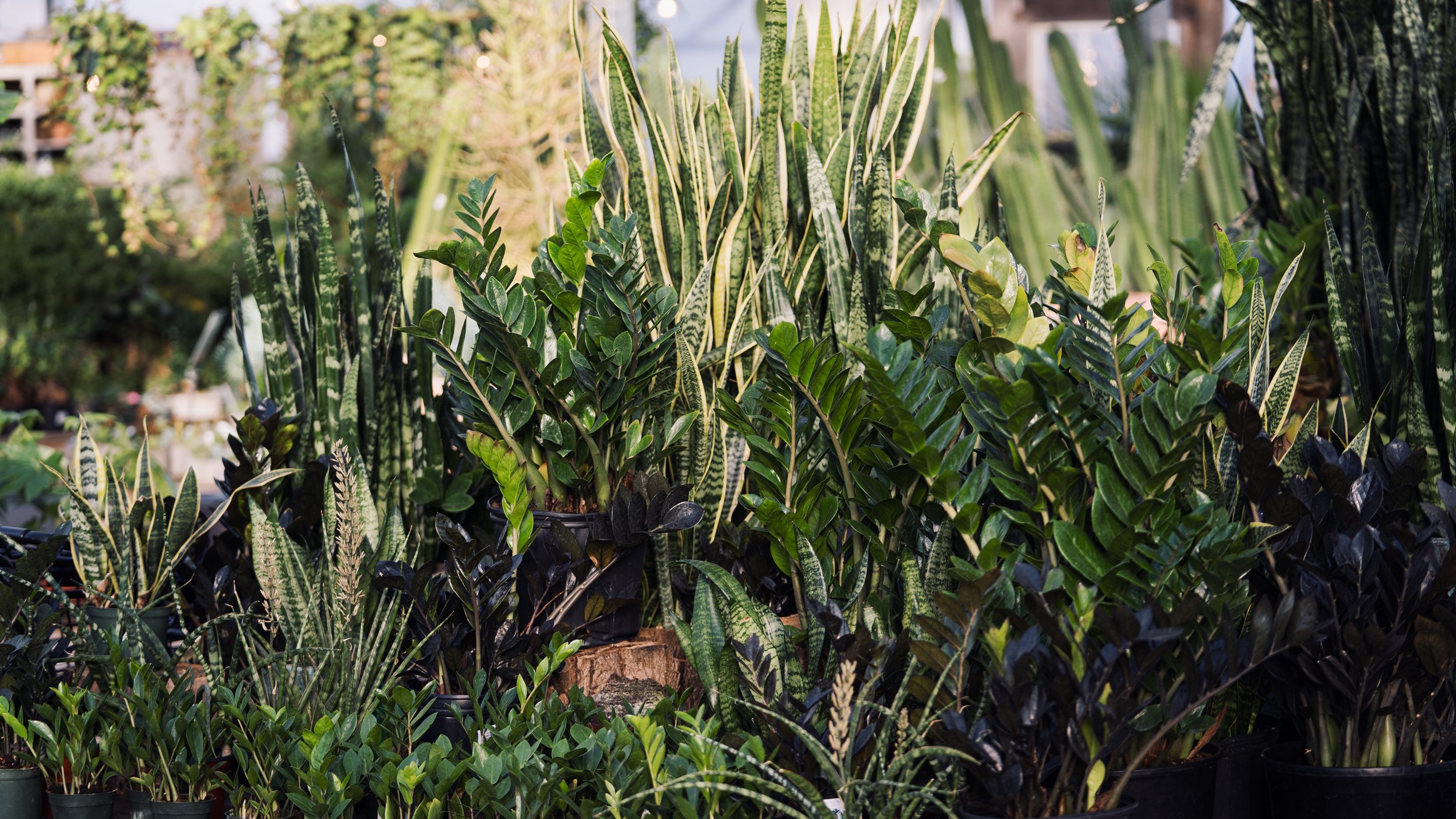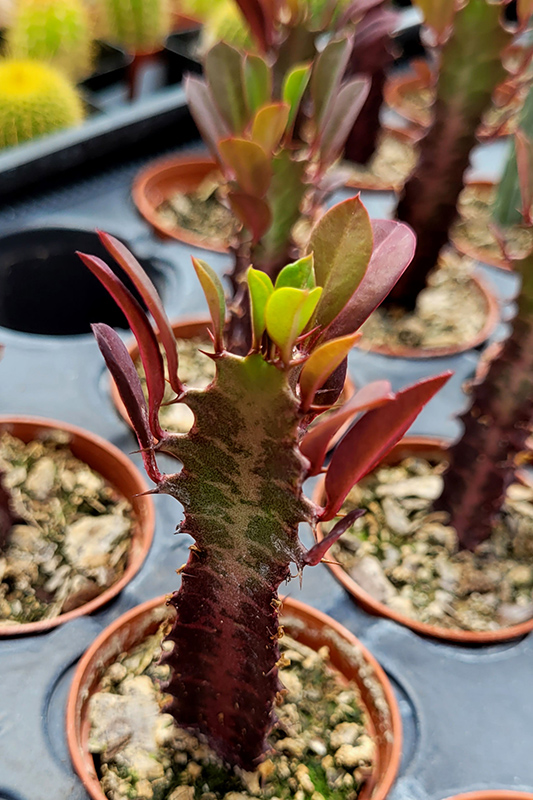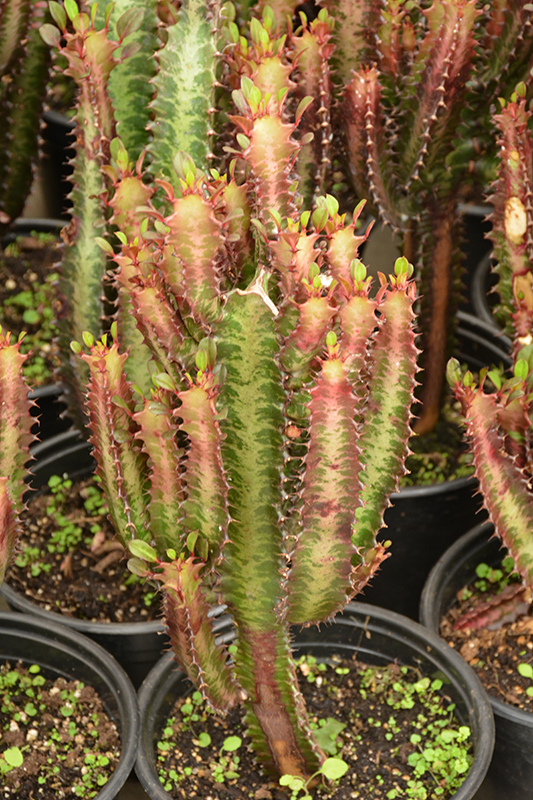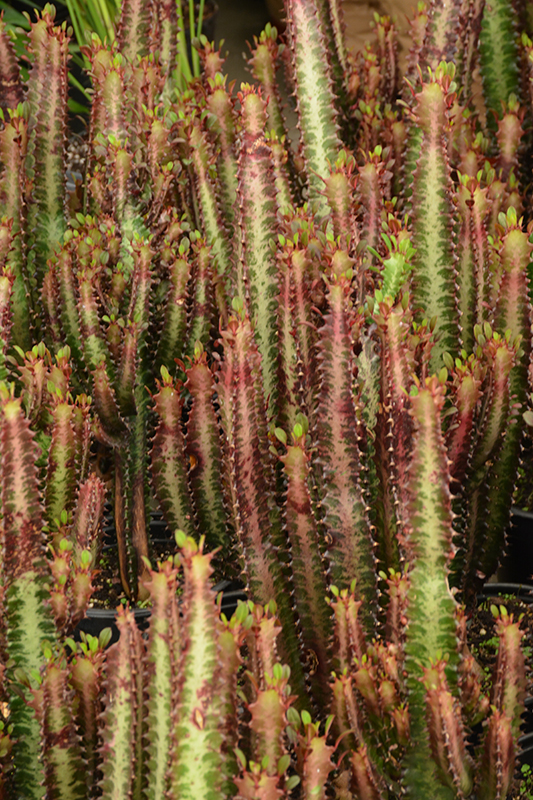
use our plant finder to help choose the perfect tree, shrub, perennial, annual, or houseplant to match your unique needs & style.
all the plants we love
Rubra African Milk Tree
Euphorbia trigona 'Rubra'
Height: 9 feet
Spread: 4 feet
Sunlight:
![]()
![]()
Other Names: Royal Red Euphorbia, Rubra African Milk Tree
Description:
An attractive, bold plant for a sunny indoor location; narrow foliage atop cactus-like branches, flushed with red and magenta; this variety is not known to flower; all parts of plant are poisonous; can be planted outdoors in warmer climates
Features & Attributes
Rubra African Milk Tree is primarily valued in the home for its ornamental upright and spreading habit of growth. Its attractive succulent narrow leaves remain green in color with hints of red throughout the year.
This is a dense multi-stemmed evergreen houseplant with an upright spreading habit of growth. Its relatively coarse texture stands it apart from other indoor plants with finer foliage. This plant should not require much pruning, except when necessary to keep it looking its best.
Planting & Growing
When grown indoors, Rubra African Milk Tree can be expected to grow to be about 9 feet tall at maturity, with a spread of 4 feet. It grows at a medium rate, and under ideal conditions can be expected to live for approximately 60 years. This houseplant will do well in a location that gets either direct or indirect sunlight, although it will usually require a more brightly-lit environment than what artificial indoor lighting alone can provide. It does best in average soil that is neither too wet nor too dry, and may die if left in standing water for any length of time. This plant should be watered when the surface of the soil gets dry, and will need watering approximately once each week. Be aware that your particular watering schedule may vary depending on its location in the room, the pot size, plant size and other conditions; if in doubt, ask one of our experts in the store for advice. Like most succulents and cacti, it prefers to grow in poor soils and should therefore never be fertilized. It is not particular as to soil pH, but grows best in sandy soil. Contact the store for specific recommendations on pre-mixed potting soil for this plant. Be warned that parts of this plant are known to be toxic to humans and animals, so special care should be exercised if growing it around children and pets.
There are many factors that will affect the ultimate height, spread and overall performance of a plant when grown indoors; among them, the size of the pot it's growing in, the amount of light it receives, watering frequency, the pruning regimen and repotting schedule. Use the information described here as a guideline only; individual performance can and will vary. Please contact the store to speak with one of our experts if you are interested in further details concerning recommendations on pot size, watering, pruning, repotting, etc.
-- THIS IS A HOUSEPLANT AND IS NOT MEANT TO SURVIVE THE WINTER OUTDOORS IN OUR CLIMATE --
can’t find what you’re looking for? let us know
info@wilsonnurseriesky.com
frankfort: 502.223.1488
lexington: 859.269.5795



